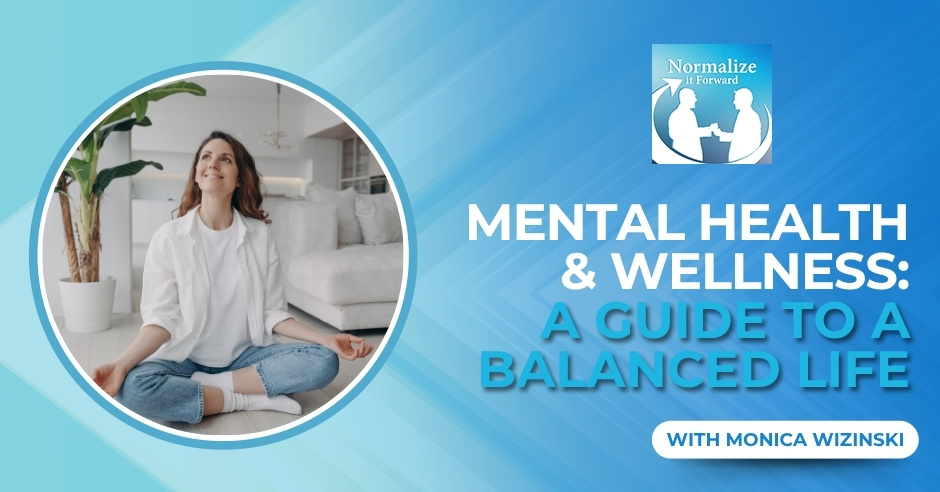
Mental health and wellness are more than buzzwords; they’re the very foundation of a life lived fully and joyfully. In this powerful and heartfelt conversation, we journey into the core of well-being with Monica Wizinski, a masterful professional coach who’s made it her mission to help people reconnect with their authentic selves. With her deep expertise in conflict resolution and a remarkable talent for listening between the lines, Monica guides us through the complexities of modern life, particularly for young adults navigating a world that’s constantly buzzing. We discuss the significance of crafting a personal “village” of support, the art of slowing down amidst the chaos, and the undeniable truth that self-care isn’t selfish—it’s a necessity. Prepare for tangible advice on managing the noise, discovering real joy, and embracing the power of presence in a world that insists on speed. Monica illuminates the path to finding your inner center and cultivating a sense of peace that radiates outward, affecting every aspect of your life. If you’re seeking a way to anchor yourself in this whirlwind of existence and build a lasting sense of well-being, this episode is your compass to a more centered, vibrant, and truly healthy you.
Reading about mental health is hard. Let’s schedule a free consultation.
—
Watch the episode here
Listen to the podcast here
Mental Health & Wellness: A Guide To A Balanced Life With Monica Wizinski
We are here to have an open conversation about mental health and wellness. We welcome Monica Wizinski. How are you?
I’m great. How are you?
Good. Thank you. Monica is a professional coach specializing in personal growth, conflict management, and organizational development. With a background in mediation and deep listening techniques, she’s dedicated to helping individuals gain clarity and enhanced communication and achieve a balanced work-life integration. Through her coaching practice, Monica offers a supportive environment for clients to explore their aspirations and overcome limiting beliefs. She’s active on social media, sharing insights and promoting self-healing and growth. Monica, welcome to the show. How are you?
I’m great. Thank you again. That was a great intro. I’m happy to be here to talk about mental health and wellness with you. It’s such an important topic. I feel that the more we talk about it, the better it is.
Demystifying The Life Coach: Navigating Change & Building Confidence
I agree. Let’s jump in. A lot of my readers may have questions as to what a life coach is. Do you want to take that on and let us know, or give us a sense?
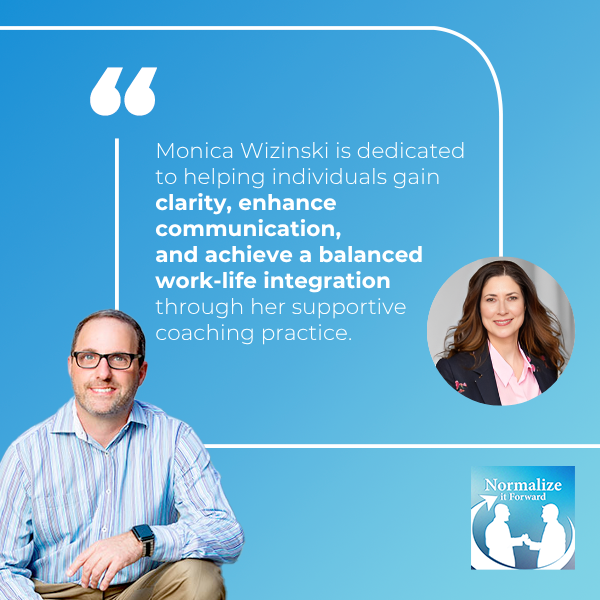
Sure. As a life coach, one of the things that is very helpful is to help guide people to navigate through change and transition and also help them develop concrete, practical tools about how they can have greater self-confidence in their life, how they can navigate challenges, and how they can improve their relationships with building communication skills.
It’s quite a vast field. Some of us coaches specialize in different areas. In my case, because I’ve worked a lot with conflict resolution and that kind of thing, I found it was a natural progression of moving people from conflict or uncertainty into a little bit more clarity and forward movement. A lot of this is based on self-leadership, which is something that I advocate for. I feel that with building the right tools and creating the right structure around ourselves, we can feel well supported to make smooth and easy transitions that help us move forward and elevate into what we want and what we’re looking for in our lives.
Building Your Village & Taming The Pressure Cooker
Thank you for that description. That was great. My head was thinking about a number of transitions. I suppose at some point, we could all use a life coach to help us.
We should all have a life coach. We should all have a massage therapist.
I agree.
I don’t like to say should, but the more support and the more infrastructure that you can create in your own life builds your village or your community. These are difficult times for so many reasons. It’s very fast-moving. There’s so much disconnect that’s happening. I feel that any movement that you can make towards a greater connection is important. Many years ago, people raised children in little villages. We had a family. Everyone was part of a greater community. How, in these times, can we build more community, more connection, and more support, and help each other?
The more support and infrastructure that you can create in your own life, the more it builds your village or your community. Share on XThat’s a great point. I feel like we need to get back to that in some ways. Everybody is siloed, and our mental health is suffering as a result of that. I’m curious. You’re located up in Canada. Down here in the States, the statistics on mental health, especially for young people, aren’t pretty. Anxiety is way up. Depression is way up. Suicidality is way up. Can you give us a sense? Are those numbers mirrored in Canada? Are they different in Canada?
I don’t know the numbers exactly. I even have clients who are university students who are looking for clarity and trying to understand how to deal with pressure and how to also regulate their family lives and their relationships. There’s so much going on, like hormonal stuff and everything. We have a lot of expectations because things are moving so quickly. We are placing a lot of pressure, often unnecessary pressure, and then there’s no outlet for how to cope or manage within that. It all starts with the family structure, so it starts young. It all begins there.
Sometimes, as kids are changing and they’re no longer babies anymore, and suddenly, they’re becoming adults, as parents, we don’t know how to cope. It’s difficult. We’re all always working. Everyone’s busy, and then everyone’s disconnected. We’re lucky if we’re getting a meal around the family together. We’re lucky if we’re sitting and having nice heart-to-heart conversations. We’re losing the simplicity of things.
Sometimes, it’s the little actions that make so much of a difference in a relationship. Whether you’re talking about a family relationship between parents, you’re in a professional setting in the workplace, or you’re in a relationship with your love partner, sometimes, it’s the little things of a little helpful hand, allowing people to know that you’re there and you’re present, and listening and being present.
We’re always about production, achievement, and moving forward, but it becomes very mechanical. It’s not coming from the heart. The heart gets missing in all of this, even though the heart is in the right place in most cases, We all want the best, but how do we move from that place of every day stuff, busyness, pressure, overwhelm, and stress into a place where there’s expansion, curiosity, and a little bit more stepping back and being open to understanding and hearing the person that we’re with in a relationship with? That could be a parent-child relationship. It could be in the workplace. It could be with your professors. It could be with your boyfriend, girlfriend, or anyone else.
Those are such great suggestions. On a large scale, we need to slow down. I present a lot to families online, teach classes, and so forth. One of the things I noticed that’s laced within all of my presentations is listening more than talking. My kids are 24 and 22. When they were born, I remember for a moment thinking, “I can take them home? You’re going to trust me?” As parents, we don’t know anything. It’s like on-the-job learning constantly.
Your point is good in that we’re learning how to do these things at every stage. When we get one stage down, we move on to the next one. Even more, there’s a lot of pressure on young people. It becomes, in some ways, our job at home to do what we can to relieve that pressure and give them some space to not feel so intense all the time and not feel like they’re chasing something. I’m not even sure what they’re chasing.
Self-Care As Self-Leadership: Finding What You Need Right Now
That’s making me think of something when you’re speaking about that. There is that responsibility that we have to the loved ones around us and the presence that we need to provide, but it also comes back a lot to our own selves. What I mean by that is there are so many amazing tools and tricks out there in terms of mindfulness.
Let’s say as parents, or if we’re going to even talk about our own selves and what we’ve all been through, and even for youth, for teens, or for anybody, it’s taking a moment to find out, “What do I need right now? Do I need to take a break from this situation? Do I need to step out? Do I need help? Do I need to take a breath for five minutes and come back to it? Do I need to explain myself?” It’s so tricky.
Using tools like mindfulness is something that is supportive in the process of slowing down. I know I go a mile a minute all the time, but I also know when to stop. I have scheduled stops and breaks with myself where I eat, do yoga, breathe, journal, connect with myself, get somatic therapy, or whatever it takes to be in touch with myself and what is happening. This is something that’s so accessible and available. I feel that as role models are in a relationship, a lot of it is role modeling also, so the other individual that we are in a relationship with can also feed off of that.
Beyond The Buzz: Real Self-Care For Mental & Physical Wellness
It’s a great point. It’s something I talk a lot about on the show, which is self-care. Self-care is something that, clearly, you and I do to give ourselves some room because if we are moving intensely throughout the day and we don’t do that, our own mental health and wellness suffer. That’s not only important for parents and partners, but it is also important for young kids to understand. If you are going to move intensely throughout your day and you don’t have any way to let the air out of your tires, at some point, your tires are going to explode.
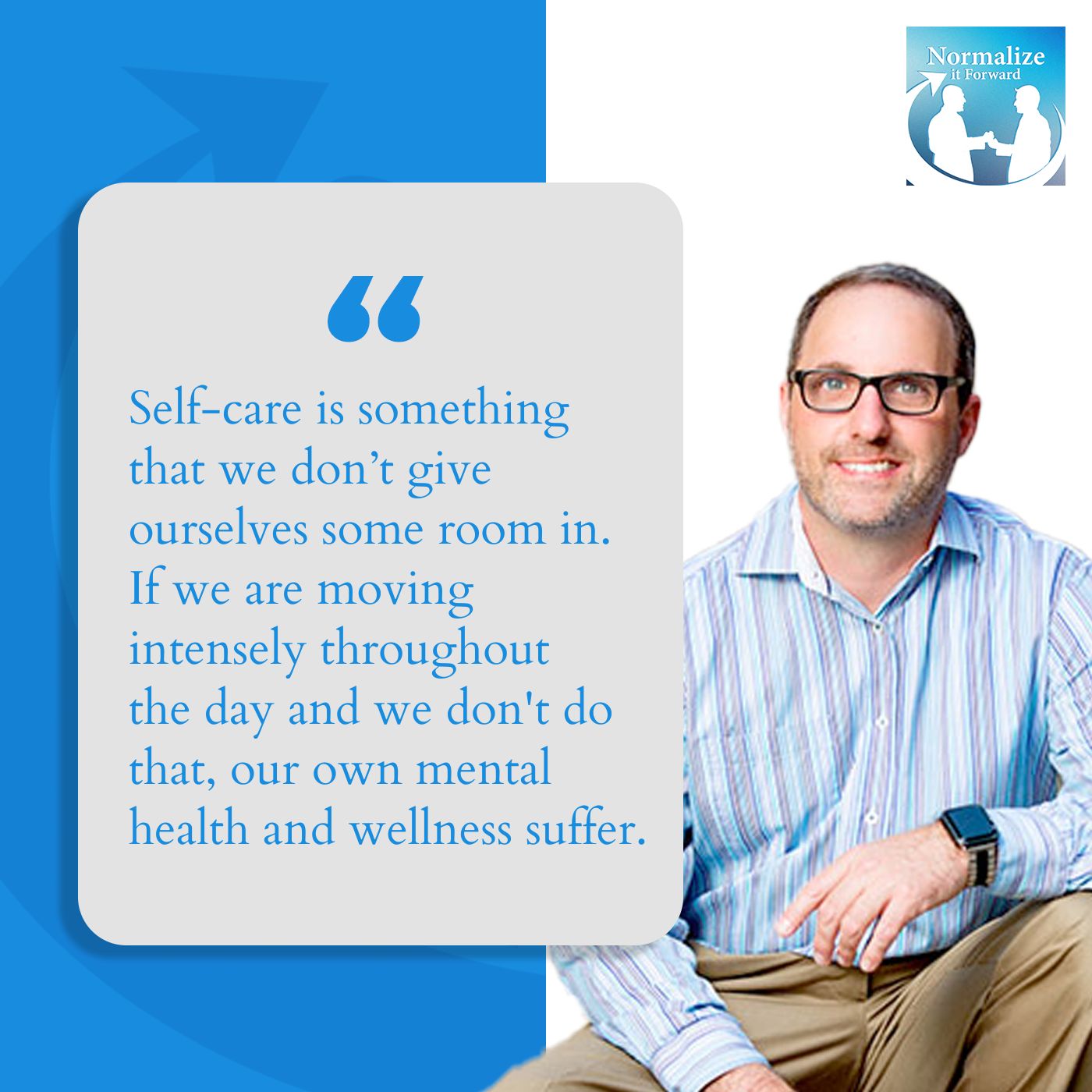
Turn it off.
You made some great suggestions. Breaks from technology are super helpful.
They’re important.
When you think of self-care, especially for young adults, what else comes to mind?
It is fitness and health, like eating properly and sleeping well, which also is related to the social media stuff. A lot of students are not taking the time to feed themselves. It could be simple things like having a little breakfast, getting in your meals for the day, and drinking your water. It could be all the basic stuff of going out for a quick jog and maybe joining something that raises funds for charity. You can run or you can support others. Be involved in tennis or play a sport.
Whatever it is, you need to have a physical outlet. It’s so critical. I realize that more and more as time goes on and the more and more people I speak to and coach. It’s that balance of physical, mental, and emotional that comes together in one whole picture. If one area is lacking and suffering, then all the areas are being depleted.
Feed your body. Do self-care. There are classes out there. There are retreats. When I was 17 and 18, I was going on meditation retreats. It was weird then, but now it’s not weird at all. Yoga was crazy back then. People were like, “What? You do yoga? What do you do? Twist yourself?” Now, there are 45 million different kinds of yoga, and everyone does it. It is about having mindfulness.
Mindfulness is any activity that allows for self-reflection, alone time, thoughtfulness, slowing down, having some soup, hot chocolate, or something on a cold day, and saying, “What do I need right now?” It could be talking to a friend and looking at who my close ones are and who the people are that matter. Sometimes, we spread ourselves all over the place. It’s like peanut butter on toast. We can’t be everywhere. We can’t do everything. We have to recharge, unplug at times like a battery, a computer, or anything else, and reset.
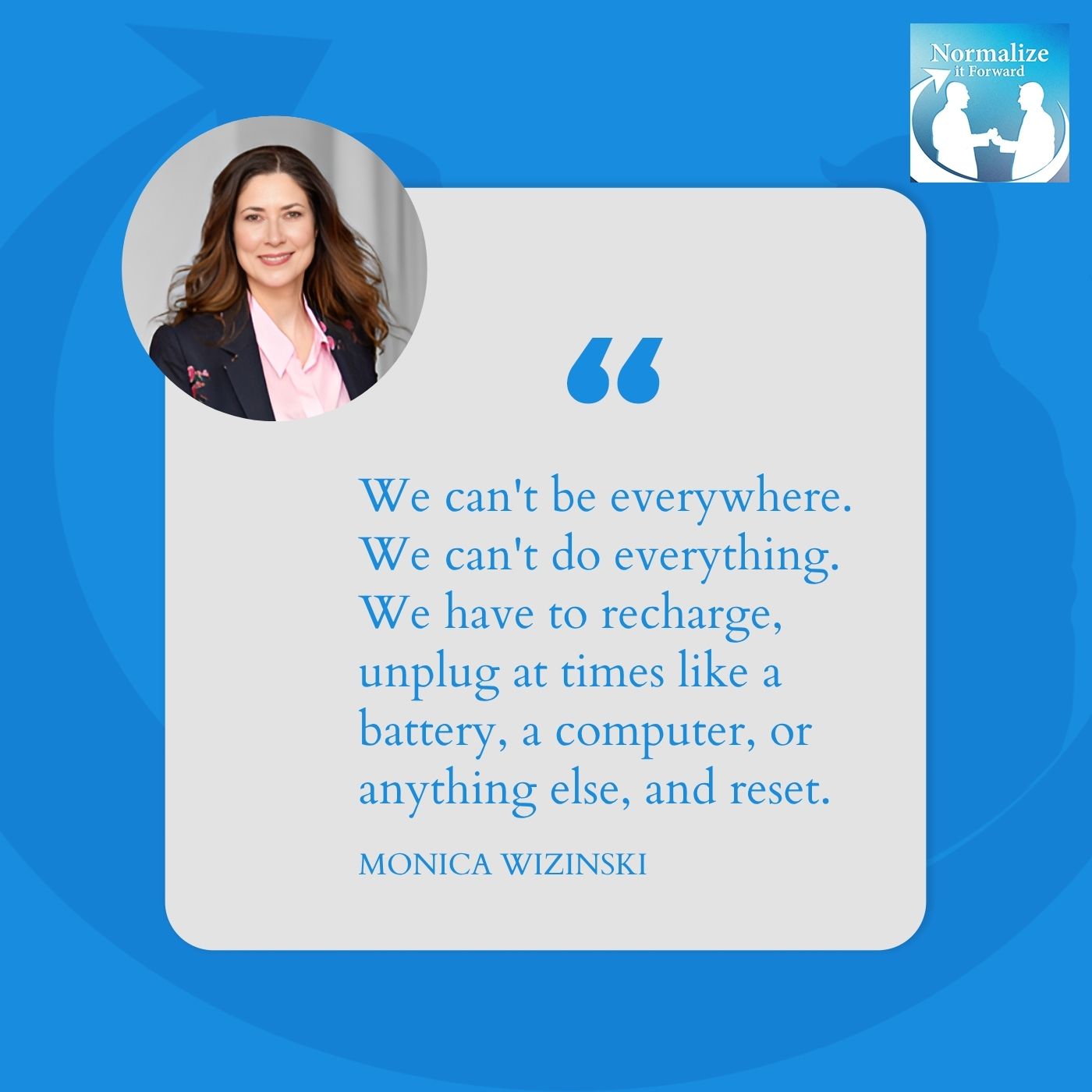
It’s different for everyone. For some people, it’s external. They like to go out and do stuff, and that charges them. Other people like to do internal, quiet things like take a bubble bath and journal or something like that. It is whatever it is that feeds and nourishes you. It is finding how to come back to your reset and how to come back to your center, so you have a sense of mindfulness and you’re able to keep going on and take a break when you need it.
That could be the best definition of self-care I’ve heard. From my perspective, for young adults, it can’t be scrolling. It can’t be social media. It has to be something for themselves. I always tell young people, “Find one thing. Find a place to start.” Maybe it’s water. Do you know how many kids out there are walking around dehydrated? Get a decent amount of water.
That makes you so tired.
Get decent water intake for a week and tell me how you feel.
It’s a simple thing.
There was so much of what you said. I’m hoping my audience reads something and they’re like, “I’m going to try that.” There’s journaling, yoga, meditation, breathwork, water, and exercise. Exercise is huge. There are so many forms of it.
Who doesn’t want to love and take care of themselves? The problem with social media is that there’s so much pressure. There are expectations, comparisons, and competition. It is and it isn’t real, so it’s confusing. The one thing we can do in North America is to find your center and be your individual self. How do you stay in the center of the storm? How do you stay grounded?
Find whatever it is that feeds and nourishes you. Come back to your reset and center, so you have a sense of mindfulness and you're able to keep going on and take a break when you need it. Share on XThere’s crazy stuff happening on this corner. Someone is going through a lot as a friend, and you want to be helpful and supportive. Your parents are putting this kind of pressure on you. There’s this expectation to do well, succeed, and be successful. There are a lot of moving parts, so find your ground. Find your center and breathe. Maybe it sounds like hippie stuff, but it works.
The Chase Without A Target: Understanding The Modern Intensity
Whether it’s hippie stuff or not, it works. I’m curious. Like me, you work with students as well as what we’ll call post-students or employees in the field, if you will, out in the community. I’m curious about your viewpoint on this. In my 25-year career, I’ve noticed the intensity and the chase from young people getting worse. I’m not even sure what they’re chasing, I’ll be honest. Maybe it’s a better school or a better job. They think it’s happiness, but it’s not. They’re not chasing happiness. I’m curious. What have you noticed in your career? How has that changed in the last many years?
Everything’s so much faster. When you’re going fast, you have to keep up. I grew up in a generation where we played hockey on the street. We were running around to people’s houses. Everything was different. Now, we’re safety conscious a lot more, which is okay and fine, but there are a lot of measures in place. It’s more sophisticated and more complex. The whole world is more complex. The things that my younger children know about, I didn’t know about until I was much older. We’re being exposed to so much more information download, and there’s so much more consumption.
That is true.
The opposite of consumption is creativity or production. If I can get a little philosophical for a moment, it’s like waves, the contraction, expansion, consumption, creativity, and output. We all want the same things. From kids to grown-ups, we all want to be able to be seen, heard, valued, and understood, to share our stories, and to live in peace and harmony.
We all want the same things. From kids to grown-ups, we all want to be seen, heard, valued, and understood, to share our stories, and to live in peace and harmony. Share on XThat sounds great.
It’s all there, the extreme pressure, extreme uncertainty, and confusion. It’s a whirlwind. It’s a crazy world out there.
That’s well said. The pace is tremendously faster. I was reminiscing as you were talking about the way you grew up. That’s the way I grew up. That’s the way a lot of adults grew up. It’s not the way kids are growing up. There’s an intensity to the number of activities kids are involved in. A 4.0 is no longer good enough. It doesn’t stop. At some point, we’re going to have a 5.5 or a 6.5. I don’t know.
I watch the suffering that happens as a result. You’re asking kids to be perfect in some ways, and there’s no such thing. When you have a kid who’s doing three activities simultaneously or when you have a kid who’s trying to bust their butt doing well in school and they’re doing their best, but their best isn’t good enough, there’s suffering that happens.
Anxiety and depression are huge in our world. I’m watching kid after kid talking about it in my office. They’re talking about their friends who are suffering. A lot of parents are looking for, “What can we do?” One thing we can do is be mindful of that and realize we’ve got a little control over how much we sign our kids up for. We’ve got a little control over what our own expectations of grades and school are. I had a parent in my office, and it was so refreshing to hear. He said, “I don’t care about your grades. I care about how much effort you’re putting in.”
That’s beautiful.
He said, “If you’re doing your best, I’m fine with it,” which was refreshing.
It is nice to see that type of attitude, which is having a little bit more compassion, understanding, and easing off on the reins. There are a lot of these helicopter parents. Even if you were horseback riding or something and the rein is that tight, the poor animal is going to be acting up, and you’re not going to get the flow that you want to achieve.
I’m imagining. I don’t know. 99% of parents want the best for their kids, but how do you create that environment? What is their part in that? I feel a part of it is that step back, listening, and not bulldozing. You’re not rolling them down the hill and telling them what they need to be doing. We have to respect one another. Respect is almost a loss.
Don’t say that.
We’ve got to keep it going.
I hear you.
Simplifying Life: Reconnecting With What Truly Matters
We have choices. As a child or a parent, there could be a big conflict or a big difference where somebody wants this for you and sees with their own experience, wisdom, knowledge, and everything else what they believe is best. Then, there’s a blossoming whole person who has their own preferences and has had them since they were two years old. They liked tomatoes or didn’t like tomatoes. We have to step back, listen, be curious, and also take the moment to see how we can ask more questions and try to find common ground.
Those are all great suggestions. I walk the line. I don’t want to come off sounding like I’m blaming parents because I’m not. I’m a parent. What we’re doing is we’re making suggestions. Some parents want to know, “What can I do differently to assist?” Pulling back is hard or scary for some parents because they assume, “If I pull back, then my son or my daughter won’t step up.”
Mind you, I had a strict mother. My father was like, “You got 5 out of 10. You got half right. That’s incredible.” It was the glass half-full. She was like, “What? You got 9.5? What happened? Is there a problem? What have I done wrong?” At least I had that little balance there. It’s not about perfection. It’s about keeping progress happening and connecting with your child in simple things. It’s not always about serious conversations about where you are going in your life and who you are with. It’s not always the heavy stuff. It’s sitting around at the dinner table or watching a TV show and having a chit-chat.
It is allowing openness to be there so that they know they can turn to you in hard times. It is being there and having those conversations in the car when you’re driving to an activity and not always making it about, “How was school? What happened today?” They’re like, “I had a hard exam,” and you’re like, “I told you to study.” Stop and listen. Be mindful. Step back, be more curious, and say, “How did that make you feel? What would you have done better?” Ask more questions and stop feeding and telling. I feel like I’m against the parents, but I’m not.
It’s a great suggestion, though, because some parents will ask in such a closed way. They get a closed answer, and they’ll say, “My kid doesn’t talk to me.”
Be there and do stuff with your kids, too. We’re so busy. The parents work so hard. It’s tricky to balance all the stuff of life for all of us. Remember how you used to go cross-country skiing. Remember how you used to go fishing together. Do those things from time to time. If it’s art, then do that. Find some bonding activities that are not related to success, progress, perfection, and the future. Be present.
Be present and spend time. That’s a great suggestion. That leads to my next topic that I wanted to ask you about, and that’s time management. I feel like poor time management for a lot of young people leads to a lot of anxiety. A lot of adults could work on this as well. I’m curious. I’m sure that’s a topic that you’ve worked on with individuals. What have you noticed in the past that has been a helpful suggestion or tip around time management?
Time Hacks & Joyful Breaks: Conquering Procrastination & Finding Enjoyment
There are two ways. First of all, a lot of people will do all their little tasks first. You make a list, go through it, check things off, and then say, “Eventually, I’m going to get to this big thing. I have to do the dooming thing that is on my back that is the dark, dooming essay I have to write,” or whatever it is. It’s the reverse that’s true. Take the first 90 minutes of your day or even 1 hour with your tea and sit down, write, and do the difficult thing a little bit. It’s a drop in the bucket. Don’t leave it to the last minute. If you don’t want pressure, you know it’s going to happen.
A lot of it is scheduling things. There are calendars, tools, and so many apps out there that can help you. There are coaches who can help you. It’s also focusing on your day and when you’re most effective. If some people work well at night, after supper, they can plow through doing whatever it is they need to do. Other people are morning people, and they function in the day. Try to think about when you function best and schedule important stuff. You can do all the other things later, the quick things.
Those are great suggestions. Many of my students come to me and they’re self-disclosed procrastinators. I procrastinate. I get it. Everybody does, to some degree. We all know where that goes. We all know if we push something off, it doesn’t magically get done. We have to do it anyway. I like what you said, which is chipping away at it.
There are a ton of good task-related apps out there. None come to mind, but I’ve had so many people use so many different apps over the years. I suggest to my audience to think about whether there is something out there that you could use as a tool that might help keep you in check, chunk it up a little bit, and face that difficult item that we’re looking to avoid. Every student knows what that means. I would imagine in the working world, too. Those are the kinds of things that, if they haven’t been resolved, they come back up.
They do come back and haunt you. It’s nice to build that resilience up. Remember the amazing feeling you’re going to have when you know it’s done. That builds more and more confidence. Refer back to those episodes of those situations where you accomplished something great that was not necessarily easy to do and was big, and you did it. Refer to how you got through it. Referring to those reference points is also a helpful tool.
Let me ask. I know you’ve got kids. Do you have a couple of kids?
I have a boy and a girl.
As do I. Let’s eliminate them for a minute and ask this next question. Enjoyment. I feel like for young people, enjoyment is overlooked. They might even look at us and go, “They don’t enjoy life.” I’m curious. What’s your go-to? What do you enjoy on a day-to-day? If you have some free time, what do you enjoy?
Daily Enjoyment & Future Insights: Finding Happiness & Next Steps
I have to tell you that it is the most beautiful question because enjoyment is so overlooked on a daily basis. I get enjoyment out of being with my family. Being with my loved ones gives me a lot of joy. I also have to be in that state of mindfulness where my head is clear. What I do is I intentionally have to put my phone away. Even I, as an adult, put my phone away because otherwise, I want to text myself another reminder or say, “I have to check this quickly.”
Enjoyment is so overlooked on a daily basis. Share on XBe here. Be now with the presence of these people, these humans that I love so much and that feed me on such a deep level. There are no words for it. It happens immediately. I get enjoyment out of being with my family. I get enjoyment from doing activities that recharge me. I seek that out. People that I find fun to be with, are very supportive, or are wonderful, cool people that I love being with, I will spend some concentrated, designated time with them. I know it’s very compartmentalized, but it has to be. I take that and savor all the diamonds from that. That charges me for a couple of days.
I love it. It’s compartmentalized because it’s strategic. You want to make sure that you enjoy life. For me, it’s music. I love music. Sometimes, I’ll combine that with going to a concert with my family, music with exercise, a spin class, or something like that. For me, that is an enjoyable thing. Even if I have five minutes to listen to a great song, I’ll do that because that creates enjoyment for me.
Everybody should have several go-tos. Those are things that create enjoyment for you. For my readers, I ask that you guys think about it. Think about what your go-to is. I would expect it would be different than ours, but I would hope that if you don’t have one, you’d find one. Enjoyment is something that is overlooked. Honestly, if they’re not strategic, they may not be focusing on it, which is problematic.
Last question. I’m going to put you on the spot for this one, but this is a good question to ask. Part of the show is I like to have the conversation continue to move forward, so I usually will ask my guests to nominate a friend, a coworker, or a relative who you’d think would be good for me to interview next. Do you have a sense of who you’d like to nominate?
I have three ideas. I’m not exactly sure which one.
You can nominate all three. That’s fine.
I’m going to nominate a gentleman named Scott Simons who works in health and wellness. He is a very interesting person who I know practices what he preaches a lot. He’s involved in building something called the Be Human Club. It’s growing. He’s an entrepreneur. He’s worked a lot with companies and individuals, providing meditation, yoga, retreats, and all things fitness. He’s had an interesting background, where he has a lot that he can connect to in terms of mental health.
That’s fantastic.
I also have a lady by the name of Randy Brandman. Randy Brandman is the School Counselor at St. George’s here in Montreal. She’s a wonderful experience. She works with youth as the school counselor. She’s a very wise, knowledgeable, fun, and relatable person. She’s also a parent. I can go on. I have a lot of contact, so I don’t know where you want to go with this.
I have another friend who is a life coach. He has formally and probably still does his work as a suicide prevention group leader and trainer for many years. He has dealt mainly with the recovery groups for parents who have lost a child and also with people who have been in deep depression, and is working with suicide. He’s veering a little bit more into coaching, but he also still has that. That’s been a volunteer position for quite a long time.
That’s fantastic. His name?
Greg Kligman.
I appreciate this. Let’s get them all on the show. That’s the way I look at it. They all have amazing perspectives. The more the merrier. We can continue to have this conversation. To me, it’s important that young people are reading about us adults talking about this and normalizing the topic because it’s here and it’s a part of their world. I appreciate your time. Those of you looking up Monica, it’s Monica Wiz for short. Would you want to give us your website and your information so people could look you up?
Yes. It’s MonicaWiz.com. I’m on Instagram, Facebook, and LinkedIn.
That’s fantastic. If you’re interested, reach out, certainly. Those of you who have an interest in connecting with us know where to find us on UAreHeard.com. Again, thanks for your time. I appreciate it.
Thanks so much.
Have a wonderful rest of your day. Take care.
Thank you. Bye.
Bye.
Important Links
- Monica Wizinski
- Monica Wizinski on Instagram
- Monica Wizinski on Facebook
- Monica Wizinski on LinkedIn
- Info@MonicaWiz.com
About Monica Wizinski
 Monica Wizinski is a professional coach specializing in personal growth, conflict management, and organizational development. With a background in mediation and deep-listening techniques, she is dedicated to helping individuals gain clarity, enhance communication, and achieve a balanced work-life integration.
Monica Wizinski is a professional coach specializing in personal growth, conflict management, and organizational development. With a background in mediation and deep-listening techniques, she is dedicated to helping individuals gain clarity, enhance communication, and achieve a balanced work-life integration.
Through her coaching practice, Monica offers a supportive environment for clients to explore their aspirations and overcome limiting beliefs. She is active on social media platforms, sharing insights and promoting self-healing and growth.
Reading about mental health is hard. Let’s schedule a free consultation.

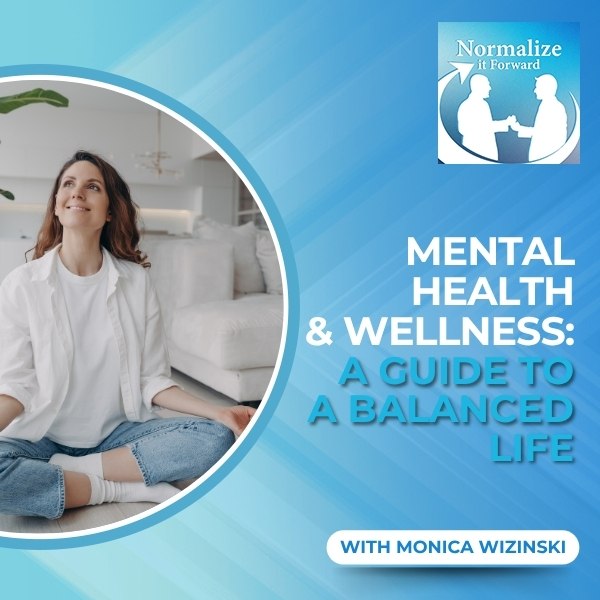
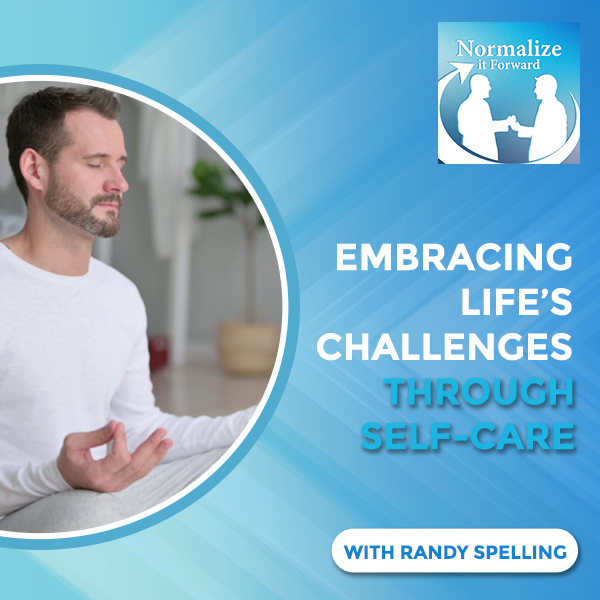
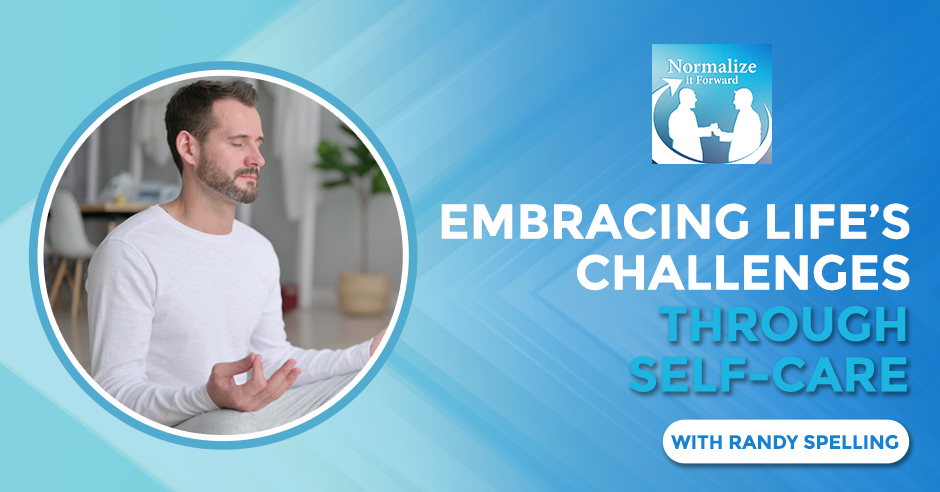
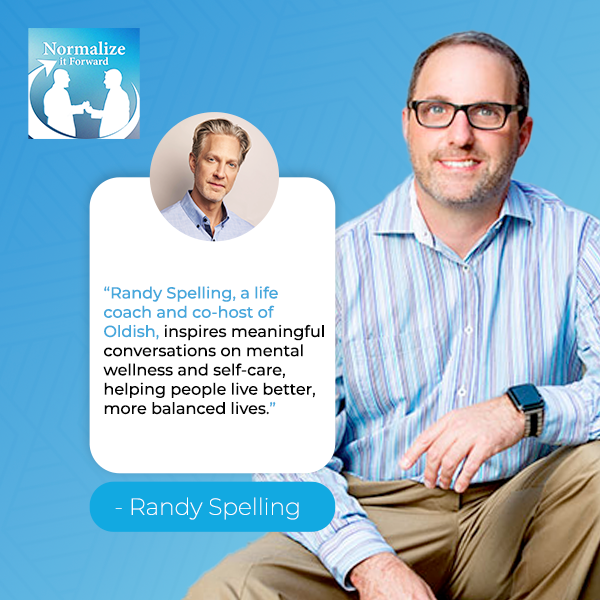
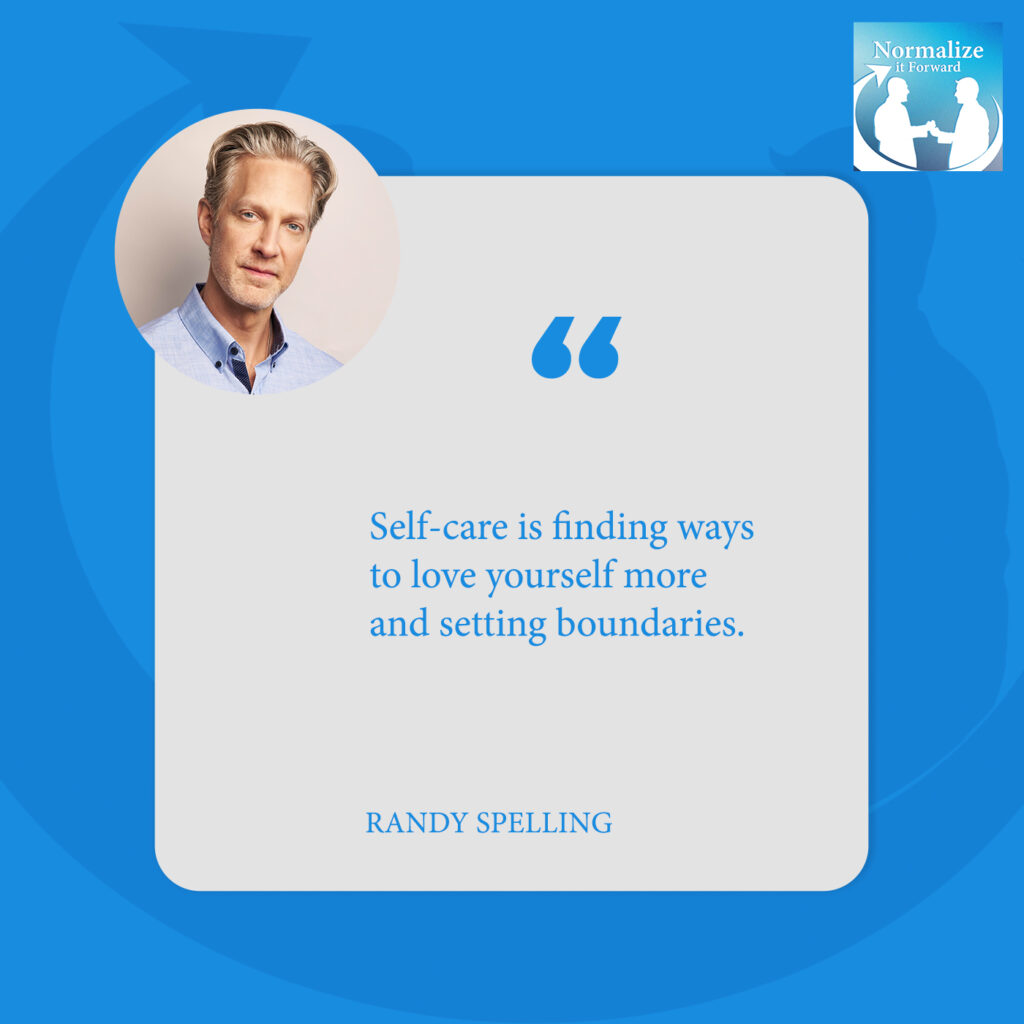
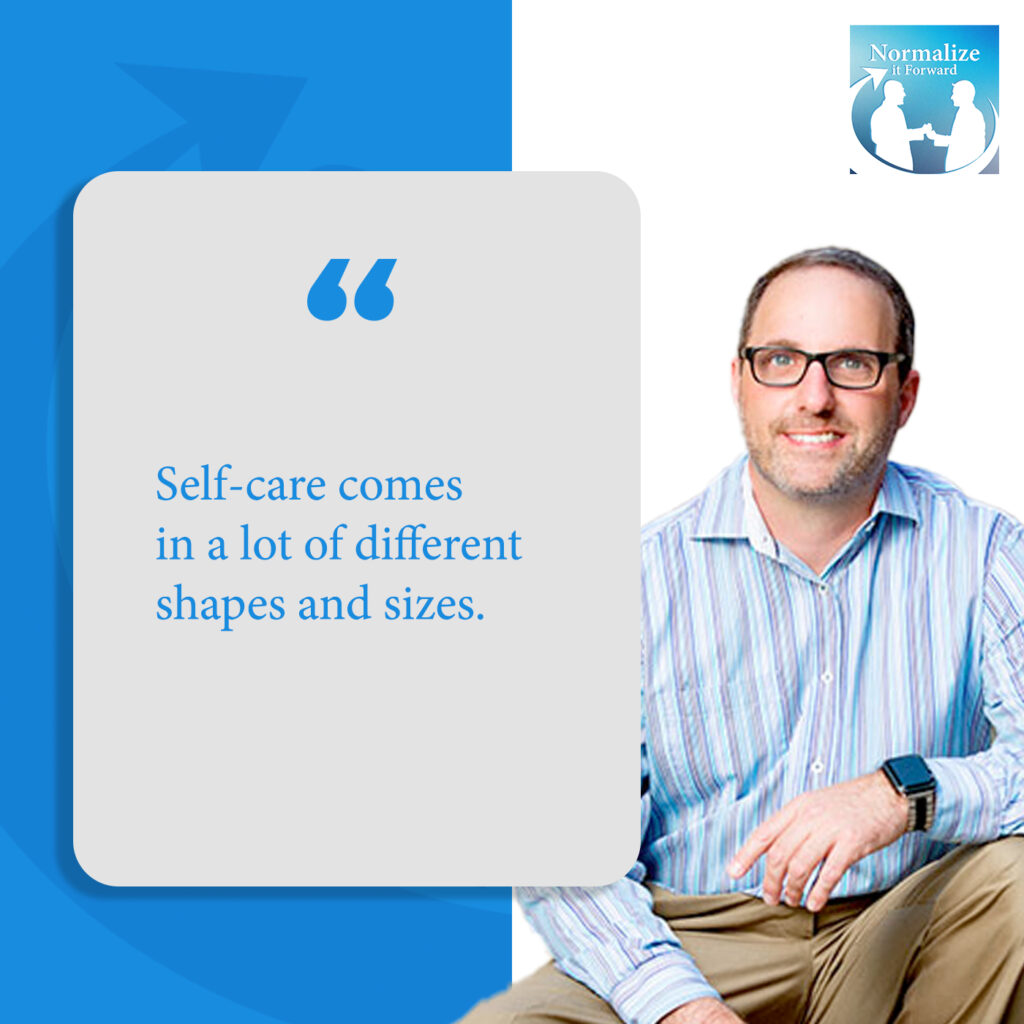
 Randy Spelling is an American life coach, author, and former actor, best known for his work in helping individuals find purpose, fulfillment, and balance in their lives. As the son of legendary television producer Aaron Spelling, Randy grew up in the entertainment industry but later shifted his focus to personal development and wellness.
Randy Spelling is an American life coach, author, and former actor, best known for his work in helping individuals find purpose, fulfillment, and balance in their lives. As the son of legendary television producer Aaron Spelling, Randy grew up in the entertainment industry but later shifted his focus to personal development and wellness.